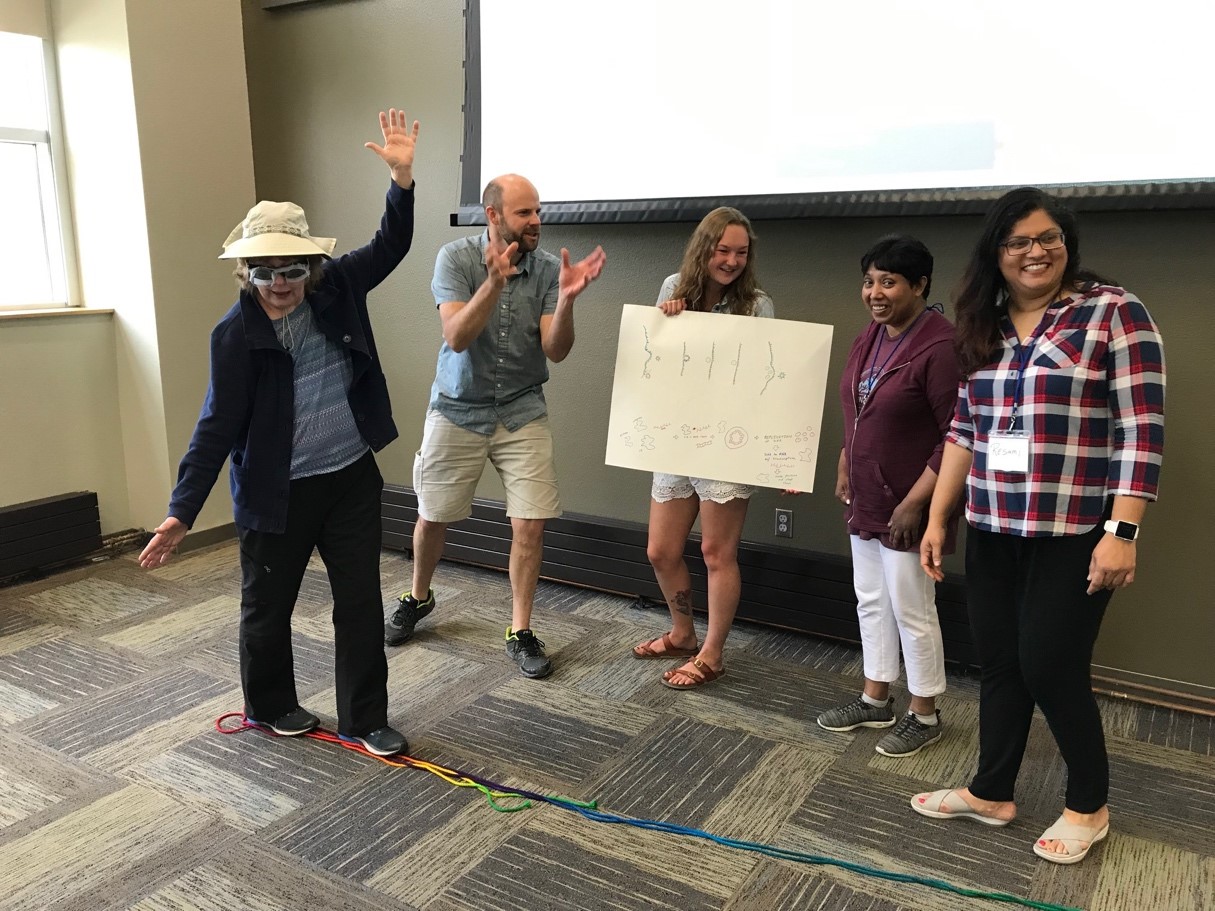LAMP FELLOW OF THE MONTH (FEBRUARY, 2020)
Our LAMP Fellow of the Month for February, 2020 is Jerod Merkle. Jerod is an Assistant Professor in the Zoology & Physiology department. When Jerod applied for the LAMP yearlong training, he set specific and rigorous goals for both facilitating authentic student learning and assessing his efficaciousness in doing so; he stated, " I aim to help students learn code, interpret data, and be creative with their analyses. Thus, I need to be innovative in how I structure class time. I am interested in learning about active teaching techniques that can be implemented in a class where everyone is working through code and analyses on a computer. I am also very interested in learning about strategies to help keep students focused and interested, and facilitate a positive mood across the class. And, from talking to other people who have participated in LAMP, I have become interested in learning about how to evaluate my own efficacy as an instructor. I do not know anything about this, and I think that it would be beneficial to my teaching and mentorship goals, and thereby, to my students."
 |
|
Jerod Merkle, second from left, joins his team in performing a skit at the 2019 Summer Institute. |
Throughout the Summer Institute, Jerod's curiosity, critical thought and continuous, sagacious inquiry buoyed the learning of all 23 of his LAMP peers. Ever mindful and present, Jerod's attention to detail inspires co-learners and educators to adequately justify and explain. During our week together, we modeled Team-based Learning (TBL), collaborative communication, a flipped classroom, polling, snowball, fish bowl, small- and large-group discussions, matching, simulations, thought barometer and role playing. Fellows also engaged with student products of Problem-Based Learning (PBL). Jerod demonstrably built his knowledge and through reflection and planning he developed an instructional strategy proposing the use of PBL and place-based learning to design an applied Geographic Information Systems (GIS) course in which students are charged with developing a viable wildlife management plan for the Pilot Hill property. When describing his planned pedagogy, Jerod wrote, " I think one of the most important things to the success of learning GIS is enabling students to use data they’ve collected. Thus, I plan to have students go to the Pilot Hill property and collect spatial data themselves.students will be more motivated to participate and learn skills when they have ownership in the data and the overall problem they are trying to solve (i.e., they live in Laramie and will likely be recreating at the property)." Jerod’s plans have become a reality this semester. In fact, he took the students of his applied GIS class out to the Pilot Hill property in the first week of March and, in collaboration with Wyoming Game and Fish Department, collected data on wildlife presence across multiple transects that crossed the property.
Jerod attended to every important element of an instructional strategy. He aligned his philosophy for course design with his learning outcomes, activities and assessments. His learning outcomes were specific and measurable. For example, one outcome stated, "Students taking Introduction to GIS for Wildlife Biologists will be able to Create geodatabases, and develop a step-by-step work-flow for how to organize, manage, and store vector and raster data."
Jerod is the epitome of a highly productive research faculty member who is using active learning to enable his students to authentically experience what it is like to truly be wildlife biologists. Rather than simply hearing about what wildlife biology is, the students are experiencing it themselves as novice researchers – both collecting data in the field and then analyzing it. In our most recent LAMP workshop, Jerod excitedly told me about his classroom and said, "It's good chaos". Great active learning, just like authentic research, is anything but linear! Congratulations Jerod and thank you for so authentically mentoring your students.

